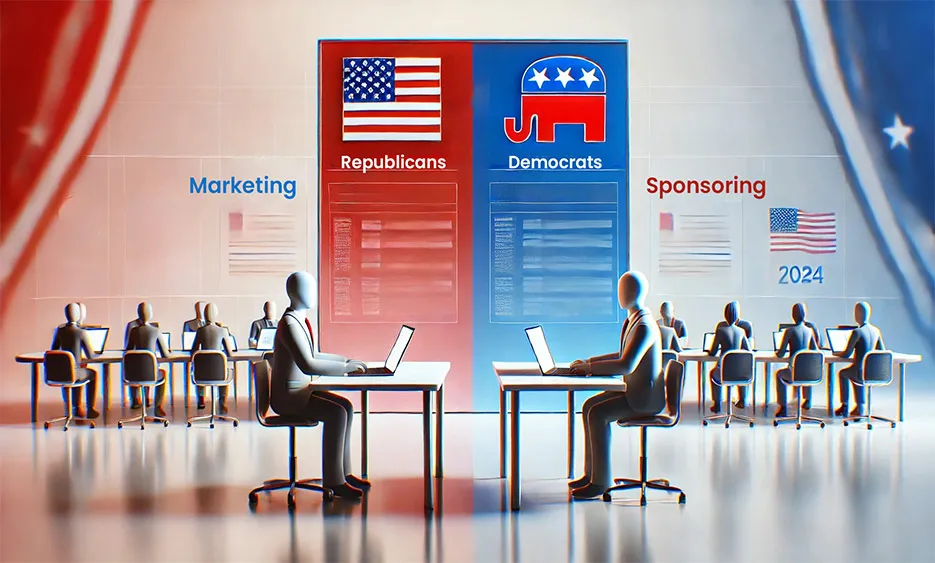
US election campaign 2024: marketing strategies at a glance
19. July 2024
The 2024 US election campaign is shaping up to be an intense race with significant implications for both major parties' marketing and sponsorship strategies. Here is a detailed overview of the ongoing strategies and what makes this campaign particularly interesting.
Online-Strategies
Digital marketing is a cornerstone of the campaign strategies for both Democrats and Republicans. The Biden campaign uses social media platforms to target younger voters and minorities, employing data-driven approaches to tailor messages based on demographic insights. Instagram, TikTok, and Snapchat are key channels to reach audiences less connected to traditional media. In contrast, the Trump campaign continues to use platforms like Facebook and Twitter, where it has historically seen strong engagement. Targeted ads and email campaigns are used to mobilize supporters and boost voter turnout.
Corporate sponsorship and influences
Corporate sponsorship plays a subtle but powerful role in shaping the election campaign. Large corporations and PACs (Political Action Committees) make significant contributions to campaign funds. For example, tech giants like Facebook and Google are not only platforms for political ads, but also donors through their corporate PACs. These contributions can influence policy positions and the priorities of the respective campaigns.the automotive industry is particularly interested in the outcome of this election. Under the Biden administration, supportive policies for electric vehicles and clean energy have led to significant investment in EV infrastructure. A Republican victory could potentially roll back these initiatives, which would impact future investment and regulation in the automotive industry.
Effects of laws
Two important pieces of legislation, the Inflation Reduction Act and the Bipartisan Infrastructure Law, were at the center of the Biden administration's agenda, particularly to promote sustainable energy and infrastructure development. The 2024 election could decide the fate of these laws. A change in power could lead to the repeal or reduction of these initiatives, affecting industries that rely on federal support and incentives.
Innovative campaign strategies
Both campaigns employ innovative strategies to reach voters. The Biden campaign focuses on grassroots work through community events and local influencers to build broad support. They emphasize transparency and accessibility by holding virtual town halls and Q\&A sessions to communicate directly with voters. The Trump campaign, known for its focus on large-scale events, continues to use mass gatherings to energize its base. Additionally, they invest in alternative media channels to bypass perceived biases in mainstream media and use platforms such as Newsmax and OANN.
Conclusion
The 2024 US presidential election is not only a political contest but also a showcase for advanced marketing and sponsorship strategies. Both major parties leverage digital platforms, corporate support, and innovative voter engagement to secure victory. The outcome of this election will not only shape the political landscape but also have lasting effects on various industries and regulatory frameworks. Source:
Our blog
Latest news
With our blog, you are always close to our work, our current projects and the latest trends and developments in web and print.
Any questions?





